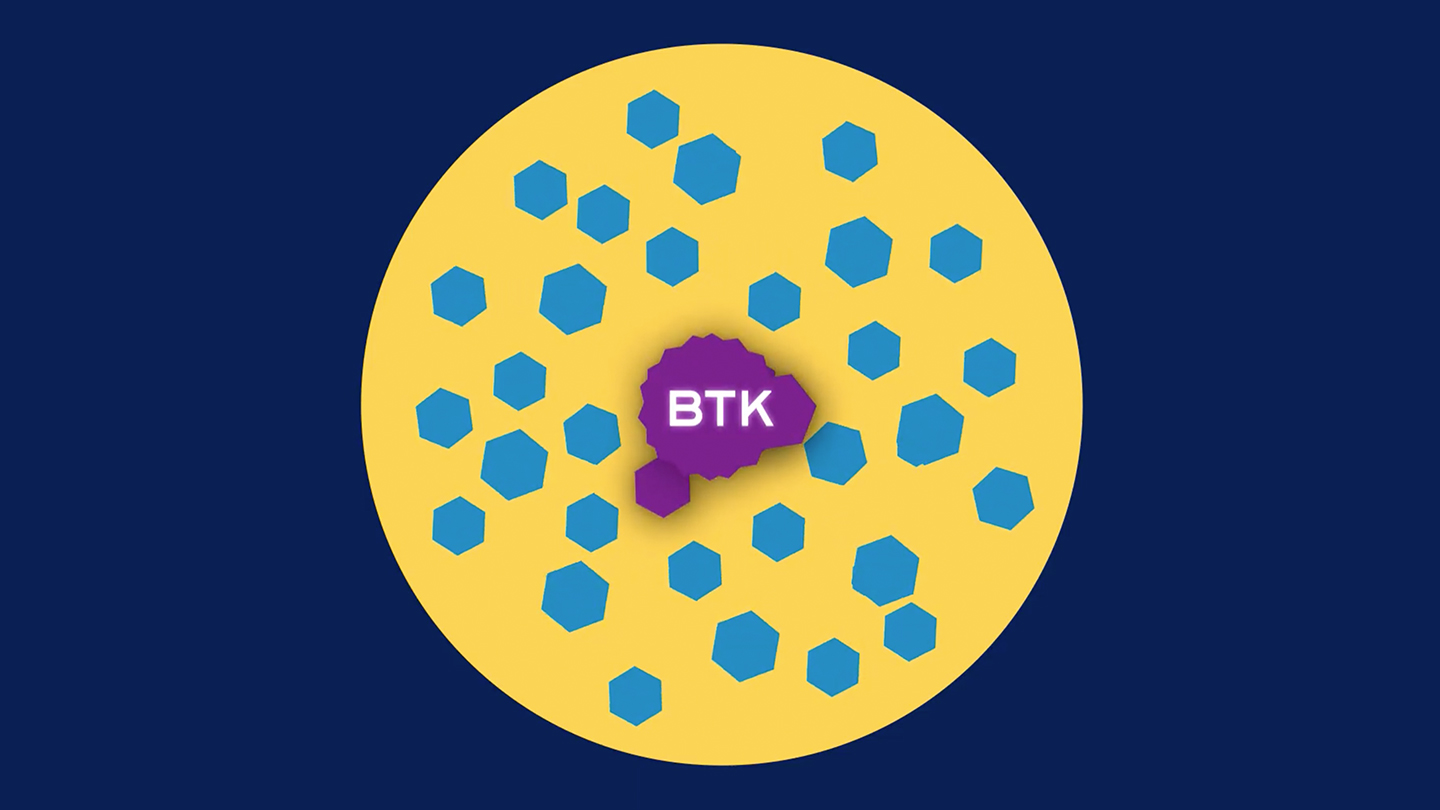BTK protein: The good, the bad and the ugly
Bruton’s tyrosine kinase helps immune function, but its malfunction may lead to cancer and autoimmune diseases. Scientists are researching new approaches in both areas.
White blood cells releasing antibodies, lymphocytes fighting infectious disease
The first discovery
Dr. Ogden Bruton was a pediatrician at Walter Reed Army Hospital in the early 1950s when he first saw a young boy presenting with recurrent lung infections. Testing revealed that the boy had no circulating antibodies in the blood, making it difficult for his body to fight infection.
The boy’s disease became known as X-linked a-gammaglobulin anemia – or Bruton’s Agammaglobulinemia – and its identification was heralded as an important medical discovery, even being featured as such by TIME magazine in 1953.
It would take another 40 years before the enzyme responsible for the syndrome was identified and aptly named Bruton’s tyrosine kinase, or BTK.
“From Dr. Bruton’s discovery, we could understand the role of BTK because of what the human deficiency does to antibody production – without BTK, we don’t produce antibodies,” says Andy Long, Ph.D., senior principal research scientist at the AbbVie Bioresearch Center in Worcester, Massachusetts, U.S.A.
Hyperactivation in cancer
B cells, also known as B lymphocytes, are white blood cells whose primary role is to produce antibodies that help the body defend itself against infection.
The good: BTK has the critical role of activating B cells leading to maturation and growth. The mature B cells can then produce needed antibodies. In a normal setting, this is a self-limiting process.
There are times, however, when the process goes awry.
The bad: Sometimes BTK is abnormally and persistently activated, signaling the B cells to grow and proliferate uncontrollably because there is no shut-off switch.
The ugly: The excess B cells crowd out the normal cells in the bone marrow and lymph nodes, and leukemia or lymphoma – cancers in the blood cells that are part of the immune system – can develop.
“In certain cancers, we have found that blocking BTK is one way to control the overproduction of B cells,” says Danelle James, M.D., M.S., head of clinical science at Pharmacyclics, an AbbVie company. “Our research has shown that targeting the BTK protein may be beneficial in certain B cell cancers, and we are hopeful that ongoing research will show that this mechanism also can help even more patients.”
Launching a self-attack
In autoimmunity, normal processes involving BTK are also disturbed, but instead of over-proliferation of B cells, the signals cause the body to turn on itself.
The good: In a normal setting, after getting the signal from BTK, mature B cells would activate and produce antibodies to fight off a particular infection.
The bad: In autoimmunity, B cells start to produce antibodies against normal proteins in the body (known as auto-antibodies.) In other words, BTK activation is telling the bad B cells to generate antibodies to the wrong thing. BTK is also involved in how the body reacts to those autoantibodies.
The ugly: In autoimmunity, when BTK causes the dysregulated production of auto-antibodies it can result in destruction of normal tissue rather than the infection, leading to diseases such as rheumatoid arthritis (RA).
“When we look at what this means for patients with autoimmune diseases, we are trying to block the activated BTK in order to shut down the production of those auto-antibodies and stop the reaction to those antibodies in the tissue,” Dr. Long says. “We know multiple pathways are involved in autoimmune diseases like RA and we are researching new medicines that combine different mechanisms so that we might be able to bring forward treatments that ultimately may benefit more patients.”
Media inquiries:
Shannelle Fowler
Email: [email protected]


